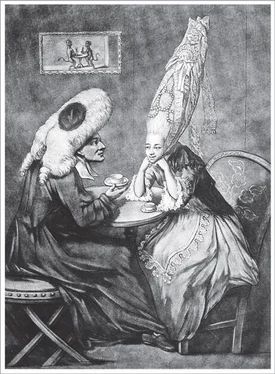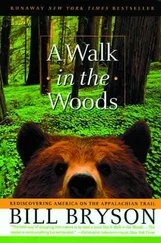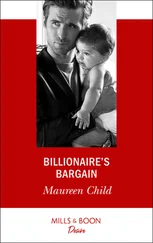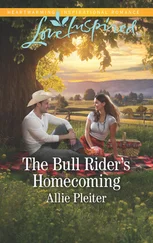Bill Bryson - At Home
Здесь есть возможность читать онлайн «Bill Bryson - At Home» весь текст электронной книги совершенно бесплатно (целиком полную версию без сокращений). В некоторых случаях можно слушать аудио, скачать через торрент в формате fb2 и присутствует краткое содержание. Жанр: Старинная литература, на английском языке. Описание произведения, (предисловие) а так же отзывы посетителей доступны на портале библиотеки ЛибКат.
- Название:At Home
- Автор:
- Жанр:
- Год:неизвестен
- ISBN:нет данных
- Рейтинг книги:4 / 5. Голосов: 1
-
Избранное:Добавить в избранное
- Отзывы:
-
Ваша оценка:
- 80
- 1
- 2
- 3
- 4
- 5
At Home: краткое содержание, описание и аннотация
Предлагаем к чтению аннотацию, описание, краткое содержание или предисловие (зависит от того, что написал сам автор книги «At Home»). Если вы не нашли необходимую информацию о книге — напишите в комментариях, мы постараемся отыскать её.
At Home — читать онлайн бесплатно полную книгу (весь текст) целиком
Ниже представлен текст книги, разбитый по страницам. Система сохранения места последней прочитанной страницы, позволяет с удобством читать онлайн бесплатно книгу «At Home», без необходимости каждый раз заново искать на чём Вы остановились. Поставьте закладку, и сможете в любой момент перейти на страницу, на которой закончили чтение.
Интервал:
Закладка:
Living conditions at private schools were always grim. Illustrations of school dormitories from the nineteenth century show them as being all but indistinguishable from the equivalent spaces in prisons and workhouses. Dormitories were often so cold that water froze overnight in jugs and bowls. Beds were little more than wooden platforms, often with nothing more for warmth and padding than a couple of rough blankets. Every night at Westminster and Eton some fifty boys were locked in together in vast halls and left without supervision till morning so that the weakest were at the mercy of the strongest. Junior boys sometimes had to rise in the middle of the night to begin polishing boots, drawing water, and engaging in all the other chores required of them before breakfast. It is little wonder that Lewis Carroll said in later life of his schooldays that nothing on Earth would induce him to repeat that experience.
Many boys were flogged daily, some twice a day. Not being flogged at all was a cause for celebration. “This week I did much better at arithmetic and didn’t have the birch once,” one boy wrote home happily from Winchester in the early 1800s. Floggings generally consisted of three to six strokes delivered on the run with a whiplike birch, but occasionally greater violence was done. In 1682, a headmaster at Eton had to resign after killing a boy. A remarkable number of young men developed a taste for the whistle and sting of a spanking—so much so that whipping for pleasure became known as le vice anglais . At least two nineteenth-century prime ministers, Melbourne and Gladstone, were devoted flagellants, and a Mrs. Collet in Covent Garden ran a brothel that specialized in providing sex with a smack.
Above all, offspring were expected to do as they were told, and to continue doing so long after they had reached their majority. Parents reserved to themselves the right to select marriage partners, careers, modes of living, political affiliations, style of dress, and almost any other consideration that could be dictated, and frequently reacted with financial violence when their commands were disregarded. Henry Mayhew, the social reformer, was cut off when he declined to submit to his father’s instructions to become a lawyer. So, too, one after another, were six of his seven brothers. Only the seventh was keen to be a lawyer (or perhaps just keen to have the estate); he dutifully qualified and so inherited the lot. The poet Elizabeth Barrett was disinherited for marrying Robert Browning, who was not only a penniless poet but—the horror of it—the grandson of a publican. Similarly, the horrified parents of Alice Roberts disinherited her when she could not be dissuaded from marrying the indigent son of a Roman Catholic piano tuner. Fortunately for Miss Roberts, the man was the future composer Edward Elgar, and he made her rich anyway.
Sometimes disinheritance was provoked by rather more trivial considerations. The second Lord Townshend, after years of being annoyed by his son’s effeminacy, abruptly struck the hapless fellow from the will when he wandered into the room one day wearing pink ribbons on his shoes. Also much spoken of was the case of the sixth Duke of Somerset, known as “the Proud Duke,” who required his daughters always to stand in his presence and reportedly disinherited one of them when he awoke from a nap and caught the ungrateful wretch sitting.
What is often striking—and indeed depressing—is how freely parents withheld not funds but affections. Elizabeth Barrett and her father were intensely close, but when she declared her intention to marry Robert Browning, Mr. Barrett immediately terminated all contact. He never spoke or wrote to his daughter again, even though her marriage was to a man who was gifted and respectable, and based on the deepest bonds of love. In the mystifying world that was Victorian parenthood, obedience took precedence over all considerations of affection and happiness, and that odd, painful conviction remained the case in most well-heeled homes up until at least the time of the First World War.
So on the face of it, it would seem that Victorians didn’t so much invent childhood as disinvent it. In fact, however, it was more complicated than that. By withholding affection to children when they were young, but also then endeavoring to control their behavior well into adulthood, Victorians were in the very odd position of simultaneously trying to suppress childhood and make it last forever. It is perhaps little wonder that the end of Victorianism almost exactly coincided with the invention of psychoanalysis.
Defying a parent was so profoundly unacceptable that most children, even in adulthood, would simply not engage in it. A perfect illustration of this is Charles Darwin. When as a young man Darwin was offered the chance to join the voyage of HMS Beagle he wrote a touching letter to his father explaining precisely why and how desperately he wished to go, but took pains to assure his father that he would withdraw his name from consideration if the idea made his father even briefly “uncomfortable.” Mr. Darwin considered the matter and declared that the idea did make him uncomfortable, so Charles, without a peep of protest, withdrew his name. The idea of Charles Darwin not going on the Beagle voyage is to us unimaginable now. To Darwin, what was unimaginable was disobeying his father.
Of course Darwin did get to go in the end, and a big part of the reason his father relented was an odd but crucial factor in the lives of many upper-class people: marriage within the family. Marrying cousins was astoundingly common into the nineteenth century, and nowhere is this better illustrated than with the Darwins and their cousins the Wedgwoods (of pottery fame). Charles married his first cousin Emma Wedgwood, daughter of his beloved Uncle Josiah. Darwin’s sister Caroline, meanwhile, married Josiah Wedgwood III, Emma’s brother and the Darwin siblings’ joint first cousin. Another of Emma’s brothers, Henry, married not a Darwin but a first cousin from another branch of his own Wedgwood family, adding another strand to the family’s wondrously convoluted genetics. Finally, Charles Langton, who was not related to either family, first married Charlotte Wedgwood, another daughter of Josiah and cousin of Charles, and then upon Charlotte’s death married Darwin’s sister Emily, thus becoming, it seems, his sister-in-law’s sister-in-law’s husband and raising the possibility that any children of the union would be their own first cousins. What all this meant in terms of relationships between nephews, nieces, and the next generation of cousins is very nearly beyond computing.
What it produced, rather unexpectedly, is one of the happiest family groupings of the nineteenth century. Nearly all the Darwins and Wedgwoods seem to have been genuinely fond of one another, which is a very good thing for us, because when Darwin’s father expressed misgivings about the Beagle voyage, Darwin’s uncle Josiah was happy to intercede on his behalf and to have a word with Charles’s father, his cousin Robert. What’s more, Robert was persuaded to change his mind because of his respect and affection for Josiah.
So, thanks to his uncle and a tradition of keeping genes within the family, Charles Darwin did go to sea for the next five years and gathered the facts that allowed him to change the world. And that takes us conveniently, if a little unexpectedly, to the top of the house and the last space we will pass through.
* We can’t be sure that this room in the Old Rectory ever actually was a nursery. It is another of the afterthought rooms not included on Edward Tull’s original plans, so there are no blueprint labels to guide us. But its modest dimensions and position next door to the main bedroom strongly suggest that it was intended as a nursery rather than just an additional bedroom, which raises yet another intriguing and unanswerable question about the bachelor Mr. Marsham’s hopes and intentions.
Читать дальшеИнтервал:
Закладка:
Похожие книги на «At Home»
Представляем Вашему вниманию похожие книги на «At Home» списком для выбора. Мы отобрали схожую по названию и смыслу литературу в надежде предоставить читателям больше вариантов отыскать новые, интересные, ещё непрочитанные произведения.
Обсуждение, отзывы о книге «At Home» и просто собственные мнения читателей. Оставьте ваши комментарии, напишите, что Вы думаете о произведении, его смысле или главных героях. Укажите что конкретно понравилось, а что нет, и почему Вы так считаете.












